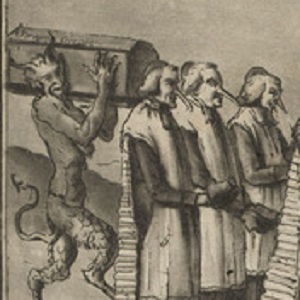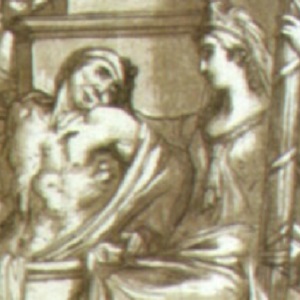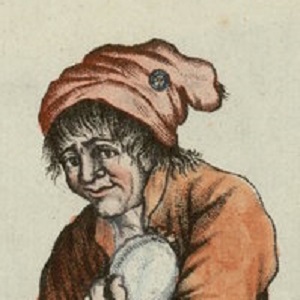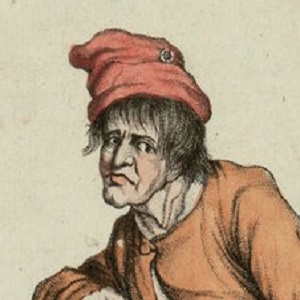Politics

Procession of Refractory Clergy
Of particular interest in this caricature of refractory clergy here are the long noses, traditionally used to caricature Jews, that suggest the refractory clergy were not of the people. This image shows resistant clergy marching in their last procession.

The Roman Aristocrat
The fattened clergyman and the well–bedecked nobleman go off unbothered while the figure in the foreground assesses carefully the value of a commoner. This complex image also includes a pig—likely a symbol for Louis XVI—with the cleric and the noble.

The Voracious Oath
This fascinating print is modeled on Jacques–Louis David’s Oath of the Horatii. In that famous painting, the artist sought to exemplify patriotic virtue by showing an austere father making his sons swear to defend Roman honor.

Robespierre Laid on the Table of the Committee of Public Safety
This Dutch engraving, based on a sketch by Berthault, shows Robespierre laid out on the table where his Committee of Public Safety did its work.

In Memory of Marat, Friend of the People, Assassinated 13 July, 1793
A leading voice on behalf of greater popular participation and social policies that would benefit the poor, the journalist Jean–Paul Marat used his radical newspaper the Friend of the People to criticize moderation.

Bust of Marat
After Marat’s death, his defenders glamorized him, forgetting both his physical deformities and his vitriolic calls for more and more heads. One common approach was to give him secular sainthood (a halo in this image) incongruous for someone with so little patience with the church.

Robespierre 10 Thermidor—Exposition of 1877
This painting from 1877 shows in romantic style Robespierre dying in a large room, surrounded by soldiers and others.

Assassination of J. P. Marat
An arrested Corday is hustled out of the door, while the inquest begins. The expired Marat, ghastly pale, looks much more realistic than in the David rendition of his death. Also, the bath in the shape of a boot, which differs from most images, is apparently accurate.

President of a Revolutionary Committee After the Seal Is Taken Off
Critics of popular action first mastered the art of searing attacks and here sharpen their propaganda skills against this activist worker, who appears to be walking off with his "loot" after the locks have been broken.

President of a Revolutionary Committee Distracting Himself with His Art While Waiting
The shoemaker shown here is president of his neighborhood revolutionary committee. Although this engraving does not portray a specific political activity, the character evokes hostility toward laborers and artisans who involved themselves in politics. The president hardly seems presidential.